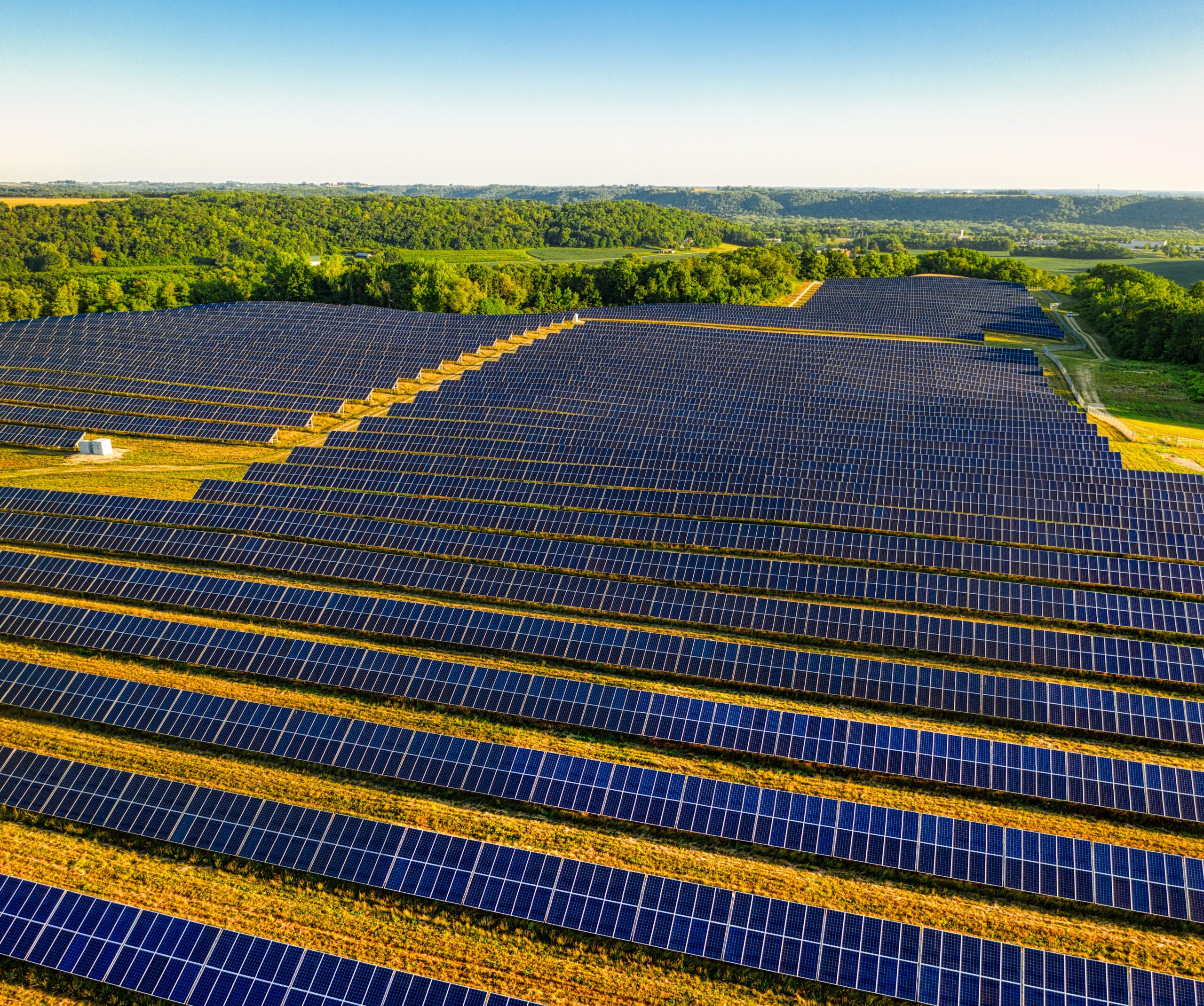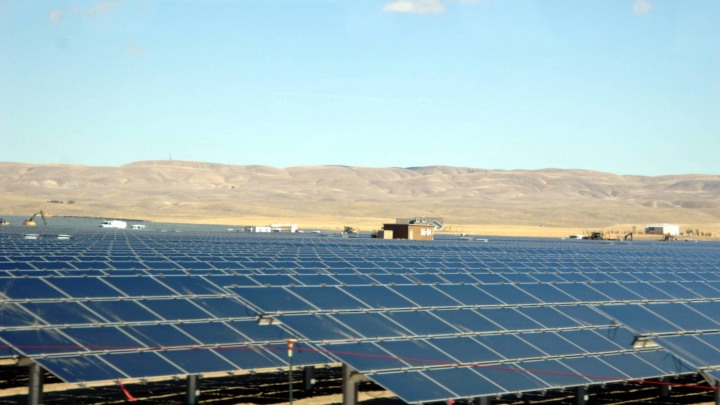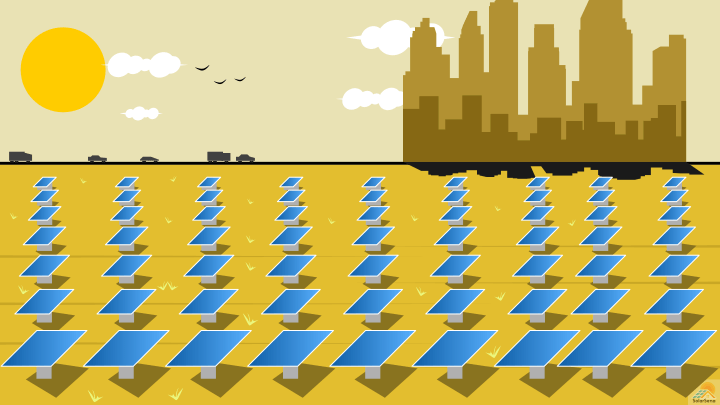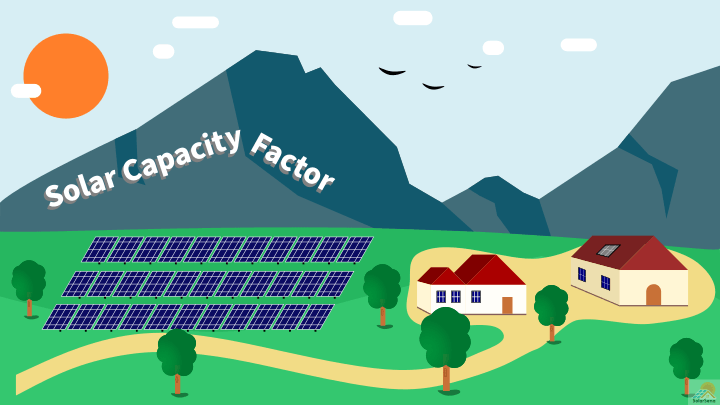Understanding the pros and cons of living near a solar farm can help inform your decision to move to a new area, build a solar farm array on your property, or to sell your property. As solar power is becoming more mainstream as a form of renewable energy in the United States and across the world, you can see a rise in homes with solar panels on their roofs and more solar farms (or plants) being built in residential areas. There are several pros and cons to solar farms themselves, but as the number of these solar farms increases regardless, people are starting to ask questions about what it’s really like to live near a solar farm.
Whether you’re looking to buy a house near a solar farm, adding a solar farm to your property to make money, are a solar developer who needs to convince folks that your solar arrays are safe, or you’re simply curious about how they work, here are some of the benefits and disadvantages of living near a solar farm.

A Closer Look at the Pros of Living by a Solar Farm
Increased Jobs
While the construction and installation of a solar farm are where most of the work comes from, there’s still work required to keep a solar farm operational. In addition to the jobs needed to run the farm, other jobs are indirectly created in the solar industry thanks to the economic growth a solar farm generates for the area.
Reduced Noise
Compared to other power plants, Solar farms are relatively quiet places, unlike wind turbines or coal plants. The production of solar power doesn’t make noise, and because relatively few people are needed to operate a solar farm—there’s not a constant stream of people and machinery coming and going from the farms. Solar farms also tend to be built in large open areas, which helps to keep the noise at a minimum.
Security Measures
Solar farms have security measures in place since they’re subject to damage and equipment theft—just like any other business. As a power facility, there are high voltage areas that could be dangerous if you’re not careful. While this might sound a little unnerving, these security measures not only mitigate danger for the farm, but it can make the community a safer place to live.
Affordable Energy
Solar energy is considered one of the cheapest forms of energy. While the equipment and installation can cost a lot, government grants help to bring the price down. According to Consumer Affairs, the cost of solar energy is three to seven cents per kilowatt-hour.
That’s roughly one-third to one-half the cost of fossil fuels.
Some solar farms will provide a free or reduced cost to hook up to the power supply for those living nearby. When this is the case, it further reduces the cost of solar energy for those living near solar farms.
Reliable Energy
The sun is predicted to live seven to eight billion more years. This means that solar power isn’t about to run out anytime soon.
Options for storing solar energy continue to improve, allowing you to access it even when the sun isn’t shining. Closer proximity to a solar farm also eliminates the chance that access to solar power will be disturbed and increases how quickly problems can be resolved if they do occur.
Clean Energy
Solar energy is considered a clean form of green energy. It doesn’t produce CO2 or other greenhouse gasses, and it doesn’t create air pollutants. There’s no dust coating everything like coal plants create. Conversely, solar panels occasionally need to be cleaned in order to perform their best.
Changes in Property Value
There are many claims that living near a solar farm will decrease your property value. This is primarily based on the idea of the lack of vegetation and wildlife that result from building a solar farm.
But according to SEIA, this is a misconception. Solar farms generally don’t affect property values around them, and in some cases, property values actually rise. If you own acres of land in the area, it might be a benefit!

Understanding the Cons of Solar Farms in Your Neighborhood
There can be some negative impact on a few areas of life if a solar farm goes in near your property or on your property.
Electromagnetic Radiation
There are possible health risks living near a solar farm. The equipment used on a solar farm produces low levels of electromagnetic radiation. This has been studied and is considered safe for people to be around.
While rare, a small percentage of people who experience electromagnetic sensitivity may be affected by living close to a solar farm. Effects could be as minor as a slight headache or restlessness, but you should consult with a doctor about any health concerns.
Less Attractive Views
Because solar farms require a large area of land with nothing blocking the sunlight, there’s a lot of clear space where nothing grows. While this can produce a unique view of the horizon, it’s more often described as unappealing. If you’re living near a solar farm, you probably won’t be able to look out the window and see trees in your yard.
Loss of Wildlife Habitats
With the clearing of vegetation comes the loss of wildlife habitats. Solar farms are typically built in desert areas, but that’s not the same thing as deserted areas. Particularly for very large solar farms, there may not be much around, but that doesn’t mean animals weren’t displaced during the construction process.
Keep in mind that this list is by no means exhaustive—every situation is different. So if you’re considering buying or moving near a solar farm, talk with others who’ve made the same decision.
Frequently Asked Questions about Living Near A Solar Farm
Is it unhealthy to live near a solar farm?
Unless you have a high (rare) sensitivity to electromagnetic radiation, there is likely little harm to your health if you live near a solar farm.
How far should you live from a solar farm?
This depends on the set-up of the solar farm and your sensitivity to radiation, but it is likely safe to live fairly close to a solar farm. But if you’re concerned about being too close, you can give yourself several hundreds of meters of buffer between your home and solar farm if you want to feel more secure.
Is a solar farm loud?
No, a solar farm is not loud usually. Most of the time, the inverter which translates the energy cannot be heard more than a few hundred feet or more from its position.



